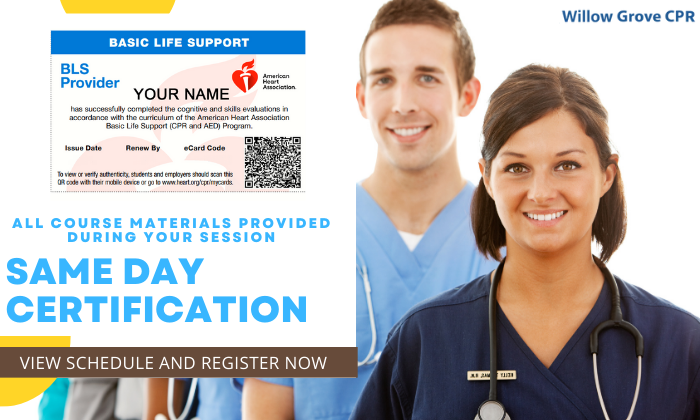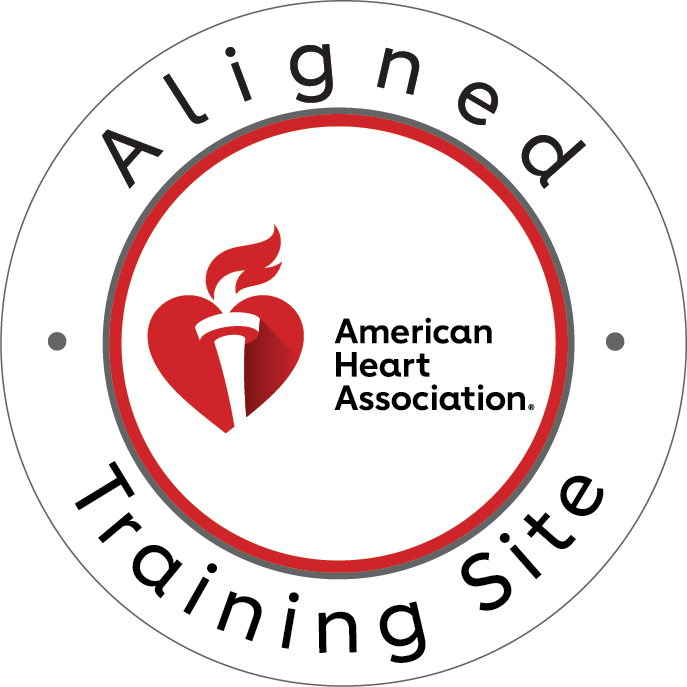American Heart Association Basic Life Support (BLS) Certification Training
In the world of healthcare, your role as a medical professional is indispensable, especially in emergency situations where every second counts. The ability to respond swiftly and effectively can mean the distinction between life and death. That's where Basic Life Support (BLS) certification steps in, equipping you with the essential skills and knowledge to tackle critical emergencies head-on. In this article, we will explore the remarkable significance of BLS certification and the invaluable benefits it brings to healthcare workers like you. Prepare to discover how BLS certification empowers you to make a life-saving difference in the lives of those in need.
**Understanding BLS Certification**
BLS, or Basic Life Support, is a standardized training program designed to equip healthcare providers with the skills and knowledge necessary to respond effectively in life-threatening emergencies. This comprehensive certification course focuses on critical life support techniques such as cardiopulmonary resuscitation (CPR), the use of automated external defibrillators (AEDs), and the recognition and management of respiratory and cardiac emergencies.
**Importance of BLS Certification**
- Rapid Response in Emergencies
- BLS certification empowers medical professionals to act swiftly and confidently in emergency situations. The knowledge acquired during the course enables them to assess the patient's condition promptly, provide immediate care, and perform necessary life-saving interventions. Possessing BLS certification transforms healthcare providers into invaluable assets in critical scenarios where every passing second holds immense significance.
- Enhanced Patient Outcomes
- Proficient execution of BLS techniques significantly contributes to improved patient outcomes. The ability to initiate CPR, deliver effective chest compressions, and apply other essential skills increases the chances of survival while reducing the risk of long-term complications. BLS-certified professionals possess the expertise to stabilize patients until advanced medical support arrives, thereby safeguarding lives and promoting better recovery prospects.
- Compliance with Industry Standards
- BLS certification is often mandated by healthcare facilities, organizations, and regulatory bodies. Complying with these requirements ensures the provision of high-quality care and allows medical professionals to maintain their credentials and legally practice within their respective fields. BLS certification serves as a testament to their dedication to upholding the highest standards of patient care and professional competence.
**BLS Certification Course Overview**
The BLS certification course covers a comprehensive range of essential topics, including:
- The vital role of BLS in saving lives.
- Recognition and assessment of various cardiac and respiratory emergencies
- Comprehensive training on CPR techniques for adults, children, and infants
- Correct usage of automated external defibrillators (AEDs)
- Techniques for relieving choking in conscious and unconscious patients
- Special considerations and strategies for healthcare professionals working within teams.
The duration of the BLS certification course varies, typically taking around 2.5 to 4 hours to complete depending on size of class and the student to manikin ratio being uses. Willow Grove CPR maintains a 1:1 Student to manikin ratio for all classes, allowing for shorter and more streamlined classes. This includes hands-on practice and skills assessment sessions to ensure participants receive extensive training and opportunities to refine their skills under expert supervision.
Course Delivery Options
BLS certification courses are offered in various formats to accommodate the diverse needs and preferences of medical professionals:
- In-person Training:
- Traditional classroom-based training conducted by certified instructors allows for interactive discussions, real-time demonstrations, hands-on practice sessions, and immediate feedback. In-person training fosters an engaging learning environment, facilitating effective comprehension and skill development.
- Blended Learning:
- Blended learning combines online modules with in-person skills practice and assessment. Participants have the flexibility to complete theoretical components online at their own pace and then attend in-person sessions dedicated to hands-on practice and assessment. This hybrid approach offers convenience while ensuring participants receive crucial hands-on experience under the guidance of experienced instructors.
**Certification Renewal**
BLS certifications typically remain valid for two years. To maintain their certification, medical professionals must complete a BLS renewal course before the expiration date. Renewal courses focus on refreshing knowledge, reinforcing skills, and acquainting healthcare providers with the latest guidelines and techniques. By participating in regular renewal courses, medical professionals ensure they remain up-to-date with advancements in BLS and continue to deliver the highest standard of care to their patients.
**Limitations of Online-Only Courses**
While online courses offer convenience and accessibility, it's important to note that many organizations and workplaces do not endorse online-only courses for BLS certification. Cardiopulmonary resuscitation (CPR) is a hands-on skill that requires in-person practice on manikins and direct guidance from certified instructors. In-person training ensures participants develop muscle memory, understand the proper pressure and rhythm required for chest compressions, and receive immediate feedback from instructors.
**Benefits of In-Person Training**
In-person training provides the opportunity for participants to interact with instructors, ask questions, and receive immediate feedback on their performance. This dynamic learning environment fosters better understanding, skill development, and the ability to adapt techniques to different situations. By prioritizing in-person training, medical professionals can ensure they are equipped with the practical skills and knowledge to respond effectively in life-threatening situations.
**Conclusion**
BLS certification is a vital step for medical professionals seeking to provide effective and timely lifesaving interventions. The certification equips healthcare providers with the necessary skills and knowledge to respond adeptly in emergency situations, significantly improving patient outcomes. By complying with industry standards and engaging in comprehensive BLS training, medical professionals showcase their commitment to delivering exceptional care and upholding the highest standards of professional competence.
**FAQs**
Can BLS certification be obtained online?
- While some components can be completed online, hands-on practice with a feedback device enabled manikin is essential for mastering BLS techniques. Full in-person training or blended learning options are recommended.
How long does BLS certification last?
The American Heart Association BLS Provider certification cards remain valid for two years. Renewal courses must be completed before the expiration date.
Why is in-person training recommended for BLS certification?
In-person training allows for hands-on practice, immediate feedback, and better skill development. It ensures professionals acquire the necessary practical skills to respond effectively in emergencies.
Are online-only BLS certification courses valid?
Many organizations and workplaces including the American Heart Association does not endorse online-only courses for BLS certification. In-person practice is necessary for mastering techniques and gaining confidence.
What is the importance of BLS certification for medical professionals?
BLS certification empowers medical professionals to respond rapidly in emergencies, improves patient outcomes, and ensures compliance with industry standards.
American Heart Association Certified Training Provider
2735 Terwood Rd. Unit H, Willow Grove, PA





